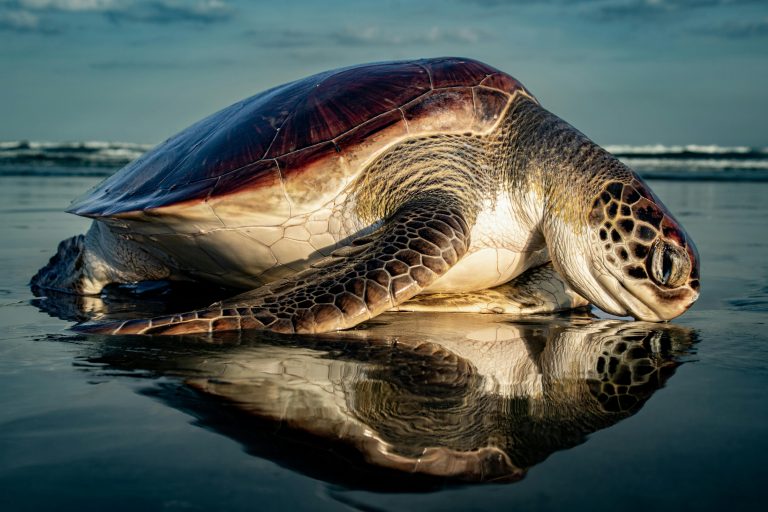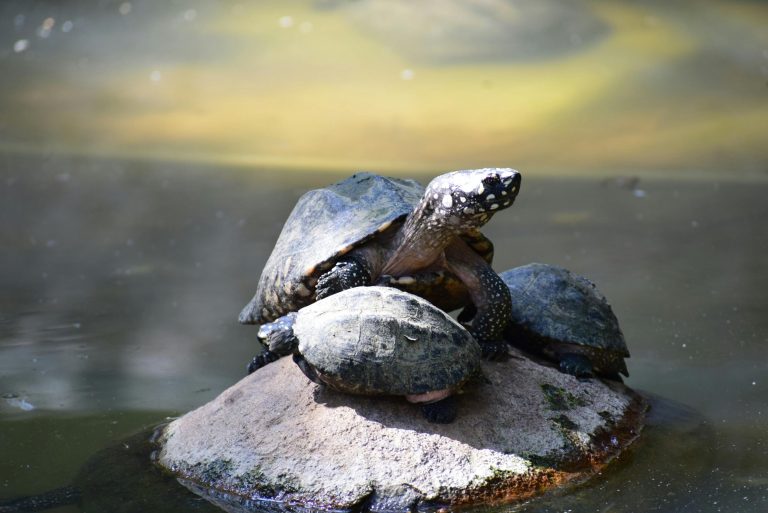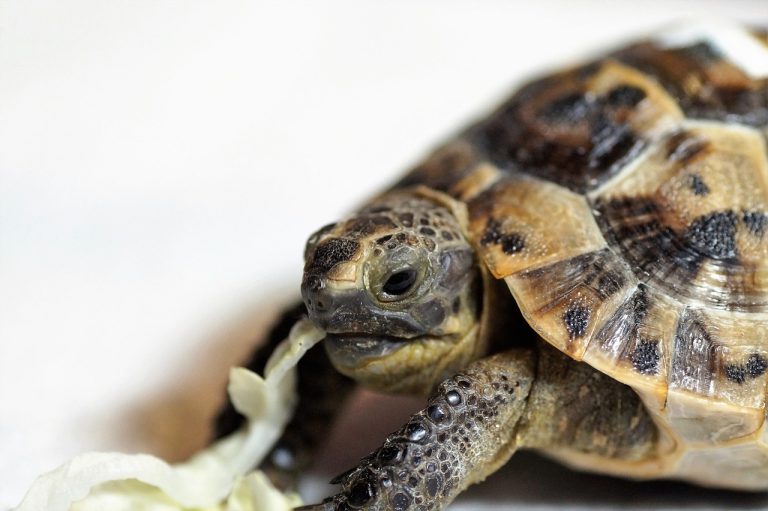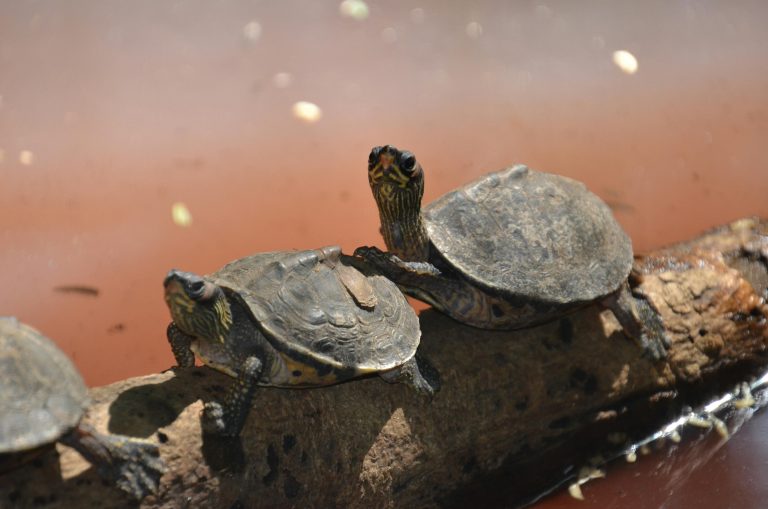Do Turtles Have Amniotic Eggs?
Forgive me if today’s piece seems a bit dry. Truth be told, this topic might only light a fire under those of you who have a soft spot for biology. We’re diving into the age-old question: Are turtle eggs amniotic?
Alright, so picture this: Turtle eggs are like the VIPs of the egg world. They come packed with all the features you’d expect in an amniotic egg. Think of the yolk as a little treasure trove—it’s got blood vessels pumping away, ensuring the little turtle-to-be gets all the nutrients it needs. Then there’s this handy pouch of fluid surrounding the embryo, keeping it nice and hydrated. And hey, just like us, turtles need to take out the trash. That’s where the allantois comes in, clearing out waste so the embryo can keep growing. And don’t forget about the chorion—it’s like the egg’s personal lung, helping the embryo breathe.
So, bottom line: Turtle eggs? Yup, they’re definitely playing in the amniotic league.
Feeling a bit lost in the egg-splanation? No worries! Let’s break it down even simpler.
In a nutshell:
- Turtles roll with amniotic eggs.
- Thanks to these special eggs, turtles can set up shop on dry land.

What Are Amniotic Eggs?
Alright, let’s start from square one.
Picture this: Amniotic eggs are like little fortresses for developing embryos. They come equipped with either a soft or hard calcium-based shell, plus an extra layer of protection called the amniotic membrane. This combo creates a waterproof barrier, keeping everything inside safe and snug.
Now, here’s the cool part: Inside that protective shell, there’s a whole world of fluid. This fluid bathes the embryo, providing all the hydration and cushioning it needs to grow, whether it’s chilling on dry land or swimming in the deep blue sea.
So, why is this such a big deal for turtles? Well, turns out, being able to drop amniotic eggs has been a game-changer for them. With that extra protection and fluid support, turtle embryos can thrive no matter where their nest lands—whether it’s on solid ground or in the water. It’s like having a built-in life preserver!
In a nutshell, those amniotic eggs are the secret sauce that lets turtles live their double life on land and in the water. Cool, huh?
Turtle Eggs Are Amniotic Because..
Let’s break it down step by step:
- Chorion: This is like the egg’s personal respiratory system. It ensures efficient gas exchange between the shell and the yolk, making sure the embryo gets all the oxygen it needs and clears out any excess carbon dioxide. In turtle eggs, you’ll find this crucial feature doing its job just like in any other amniotic egg.
- Amnion: Think of this as the egg’s hydration station. In a dry environment, the egg yolk needs protection from drying out. The amnion steps in, keeping the yolk nice and moist, ensuring the embryo inside stays hydrated. Turtle eggs? Yep, they’ve got this essential moisture-preserving feature too.
- Allantois: This multitasking sac has a couple of key roles. First off, it’s in cahoots with the chorion, assisting in the whole respiration game. Plus, it’s on clean-up duty, collecting any waste from the yolk and making sure it’s safely disposed of through the shell. And you guessed it—turtle eggs boast this handy feature as well.
- Yolk Sac: Consider this the pantry of the egg world. It’s where all the nutrients are stored, fueling the embryo’s growth. As the embryo develops, the yolk shrinks in size as it gets consumed, just like how our fridge seems to empty out mysteriously fast! And yup, you guessed it again—turtle eggs rock this fundamental feature too.
And let’s not forget about that outer shell! Turtle egg shells start off soft but gradually harden, becoming a bit brittle along the way. Made mainly of calcium carbonate, they provide that perfect balance of rigidity and fragility.
So, when you compare the checklist of amniotic egg characteristics with what you’d find in a turtle egg, it’s like checking off items on a shopping list—they match up perfectly. It’s clear as day: turtles are definitely in the amniotic egg club.
Frequently Asked Questions
1. Do Reptile Eggs Have Amniotic Fluid?
Yes, reptile eggs are equipped with amniotic fluid enclosed within the amnion, an inner membrane safeguarding the embryo. This fluid serves as both a cushion and a moisture source for the developing reptile embryo within the protective eggshell. This adaptation enables reptiles to lay their eggs on land, freeing them from dependence on water sources as required by amphibians.
2. Do Land Turtles Have Amnion?
Absolutely. All land turtles, like other reptiles, lay amniotic eggs. Each egg features an amniotic sac membrane housing fluid vital for supporting the growth and development of the turtle embryo. This evolutionary trait allows turtle eggs to thrive on land without the need for constant access to water, ensuring the protection and well-being of the developing baby turtle until it’s ready to hatch.
3. Do All Reptiles Lay Amniotic Eggs?
Yes, the ability to lay amniotic eggs on land is a fundamental characteristic of amniotes, a group comprising reptiles, birds, and mammals. Whether they lay eggs externally or retain them internally (viviparous reptiles), all reptiles develop their eggs within an amniotic sac containing fluid. This remarkable adaptation facilitated the transition to fully terrestrial reproduction across various lineages of amniotes, marking a significant evolutionary milestone.
Conclusion
Indeed, not all turtle or tortoise eggs are destined to hatch. Some eggs may not be fertile, meaning they lack the crucial ingredient needed to kickstart the development process. Without that spark of life, no hatchling will emerge from these eggs.
It’s a natural part of the reproductive cycle. Even in the wild, not every egg laid by a turtle or tortoise will result in a baby reptile. Various factors can contribute to infertility, including environmental conditions, genetics, and the health of the parents.
For turtle or tortoise parents diligently guarding their clutch of eggs, discovering that some are infertile can be disappointing. But it’s all part of nature’s plan. Those infertile eggs serve as a vital part of the ecosystem, providing nutrients as they decompose and contributing to the cycle of life in their own way.
So while it may be disheartening to find infertile eggs, it’s important to remember that nature has its own way of balancing things out, ensuring the survival and prosperity of these remarkable creatures in the long run.

![21 DIY Turtle Tank Ideas For Happy Turtles [Budget-Friendly]](https://spreadhapiness.com/wp-content/uploads/2024/03/turtle-tank-3-768x576.jpg)
![How Can I Ship My Turtle? [Foolproof Guide]](https://spreadhapiness.com/wp-content/uploads/2024/04/4.-1-768x512.jpg)


